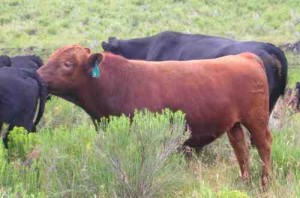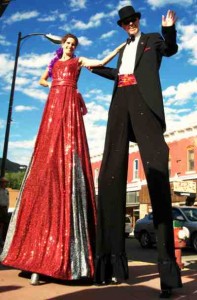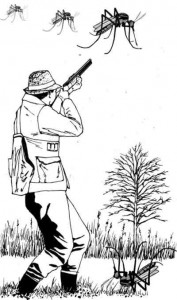Review by Lynda La Rocca
Poetry – August 2007 – Colorado Central Magazine
Open Range – Poetry of the Reimagined West
Edited by Laurie Wagner Buyer & W.C. Jameson
Published in 2007 by Ghost Road Press
ISBN 0-9789456-6-2
IT’S NOT PARTICULARLY “COOL” to admit this in the rarified air of some poetry circles, but I’ve always been a fan of “story poems,” narratives that may or may not rhyme but that always hold the reader’s attention with their themes of love, loss, longing, and real life.
Story poems make for comprehensible poetry, poetry that can be memorized and identified with, poetry that generates emotion (think: Robert Service) without the need for high-flown interpretation, ongoing analysis, or debate regarding the significance of obscure references and ambiguous language.
Narrative poetry seems the perfect venue for capturing the big-hearted, freedom-loving, rule-breaking spirit of the American West. The 20 western poets featured in Open Range (including editors Laurie Wagner Buyer and W.C. Jameson), tackle familiar western themes like riding and ranching, blizzards and branding, border crossings, bars, battles, and my personal favorites — love and death. And they do so in ways that are at once familiar as an old saddle yet fresh as rain on wildflowers.
Regular Colorado Central readers may remember my passion for Buyer’s poetry (see Colorado Central, June 1999 and October 2006). This time, Buyer touches my heart again with poems like “Witness to a Death,” where she mourns a young woodpecker that has just smashed into her window. “Witness to a Death” will resonate painfully with anyone who has cradled a lifeless bundle of feathers in their hands, feeling sad and helpless yet strangely compelled to closely examine a usually elusive creature whose “limpid liquid eye” reveals — our own reflection.
Another poet familiar to Colorado Central readers, albeit for his prose, is George Sibley, who wrestles with humanity’s penchant for wreaking havoc in the natural world in “On Driving Past the One Hundred Thousandth Roadkill.” Here, he envisions a time when:
“These animals sleeping on the shoulder
Will one day all wake up and take back the roads. . . .
And a million white birds will take back the air.”
Man’s responsibility for his own choices is the theme permeating “Letter to Angelina,” the outstanding poem by Mike Blakely that opens this collection. In just 17 lines, Blakely deftly captures an entire relationship, beginning after the lovers have parted, then moving backward in time to recall an all-encompassing passion. Simultaneously relishing and lamenting the cowboy’s yearning for freedom that dooms any attempt at a conventional lifestyle, Blakely concludes with a line that captures all the poignancy and pathos of a lonely man bound more profoundly to his need for independence than he could ever be to any woman:
“Angelina, I never should have tried to settle down.”
In “After I’m Gone,” Richard S. Wheeler muses about where in all the vastness of the West his beloved might scatter his ashes, while in the seven-page opus, “El Corrido [the ballad] de Antonio Beltran,” John Duncklee paints a vivid portrait of a man illegally crossing the Mexican border to work America’s fields back in the days when such illicit travel generated neither national attention — nor anger.
As a poet myself, I got a kick out of Paul Zarzyski’s “Cowboy Poet Barnstormer” and its all-too-accurate epigraph by Guy Clark:
“Ain’t no money in poetry
That’s what sets the poet free
And I’ve had all the freedom
I can stand.”
I also like the short poets’ biographies at the end of this 117-page book. But if I’d had my druthers, I would have included each poet’s name on every page containing his or her work. I enjoy opening poetry anthologies at random and reading whatever happens to appear on the page. It would be nice to know immediately whose poems I’m reading, rather than having to flip back to the contents or the beginning of the section featuring an individual poet.
But enough nitpicking. In their introduction, Buyer and Jameson write that they sought poetry for Open Range that captured
They certainly found it. And this reader thanks them for it.



